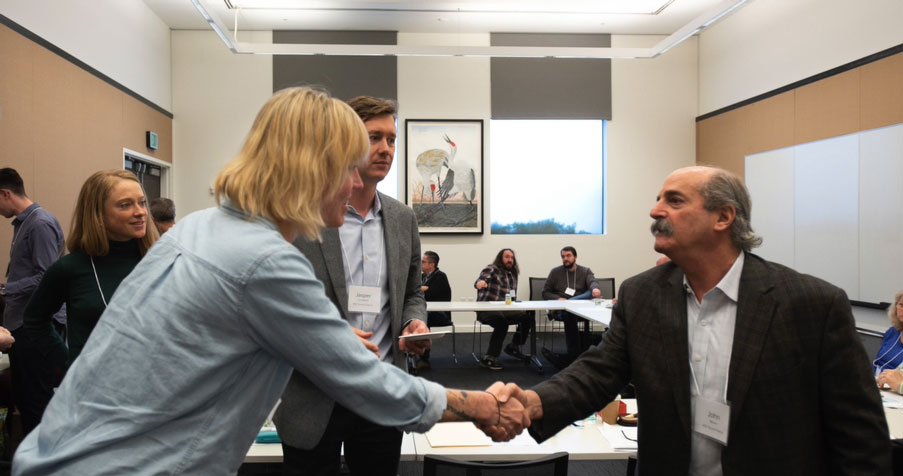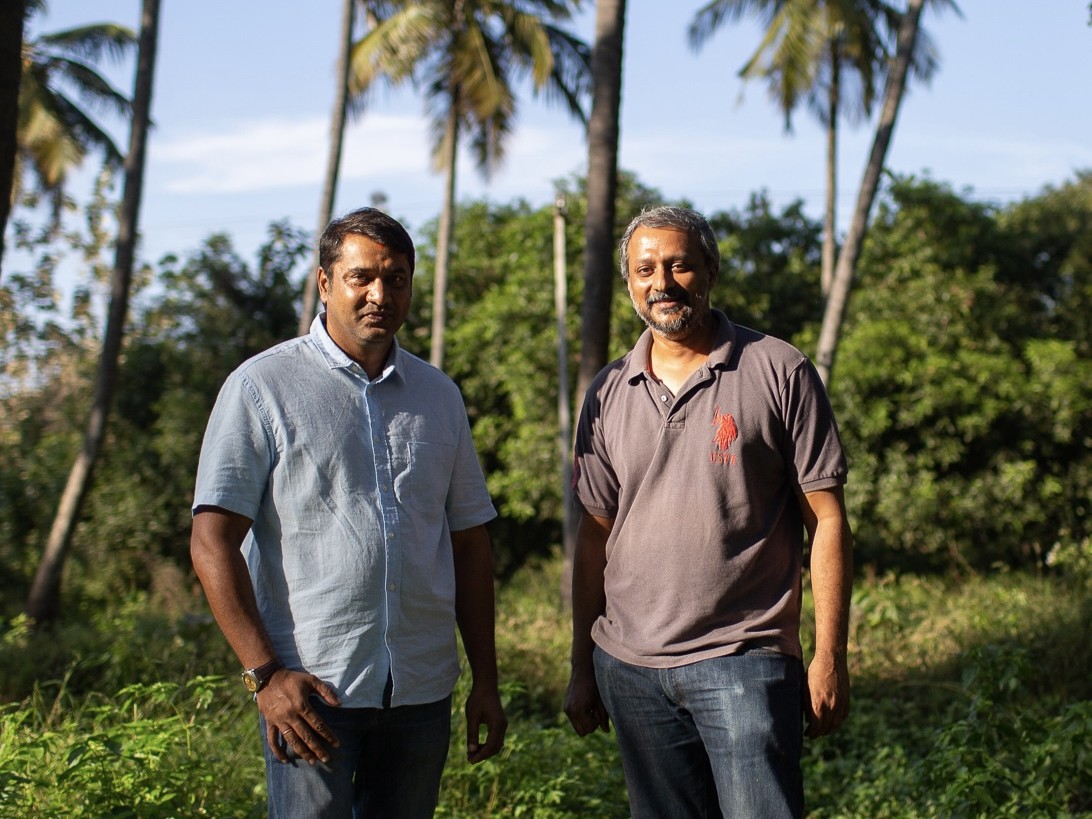As part of its vision for a just and regenerative economy, RSF Social Finance holds a fundamentally different view than that of the free market. It’s not just that we want to work past the inequity of our current economy. Rather, we are striving to serve the needs of people and environment before the needs of capital itself.
This is a lofty goal which begs the question, “What might this look like in practice?”
We have received significant public recognition for our Community Pricing Gatherings. Each quarter we bring together representatives in our Social Investment Fund—investors, borrowers, and RSF staff—to make an interest rate recommendation for the upcoming quarter. This participatory process is radical and changes people’s perception of how money actually works in community with all stakeholders present.

This last year the demand for Shared Gifting Circles as an innovative approach to philanthropy grew tremendously. The idea is simply that a lump sum of money is offered to a group of charitable entities who then together determine what each organization receives. Each participant is both grantor and grantee. This revolutionary approach to grantmaking unwinds the conventional power dynamic of giver and receiver.
We recognize that each form of money—gift, loan/investment, and purchase— has an important role in the economy. In particular, we understand gift as the foundation of economic life. Thus, our philanthropic-based Collaboratives are not only important vehicles for cultivating a new economy, they are also places of practice, learning laboratories for transforming the flow of capital in its numerous forms.
What brings coherence to these radical approaches is that they are manifestations of ideas first articulated in 1922 by Rudolf Steiner as a solution to the profound economic chaos of his time—rampant inflation, class warfare, and tremendous wealth disparity. The central concept is one of associative economics. The purpose of economic associations is to bring together all the parties to determine levels of production based on actual need, ensure appropriate distribution, and to set prices such that all parties are sufficiently satisfied. The operative principle of associative economics is compassionate interdependence, which requires that participants recognize that through working to meet the needs of others, their needs will be met. An associative economy replaces the competitive “marketplace” with a sense of collaborative responsibility for the whole economy.
John Bloom is the former Vice-President of Organizational Culture at RSF.


